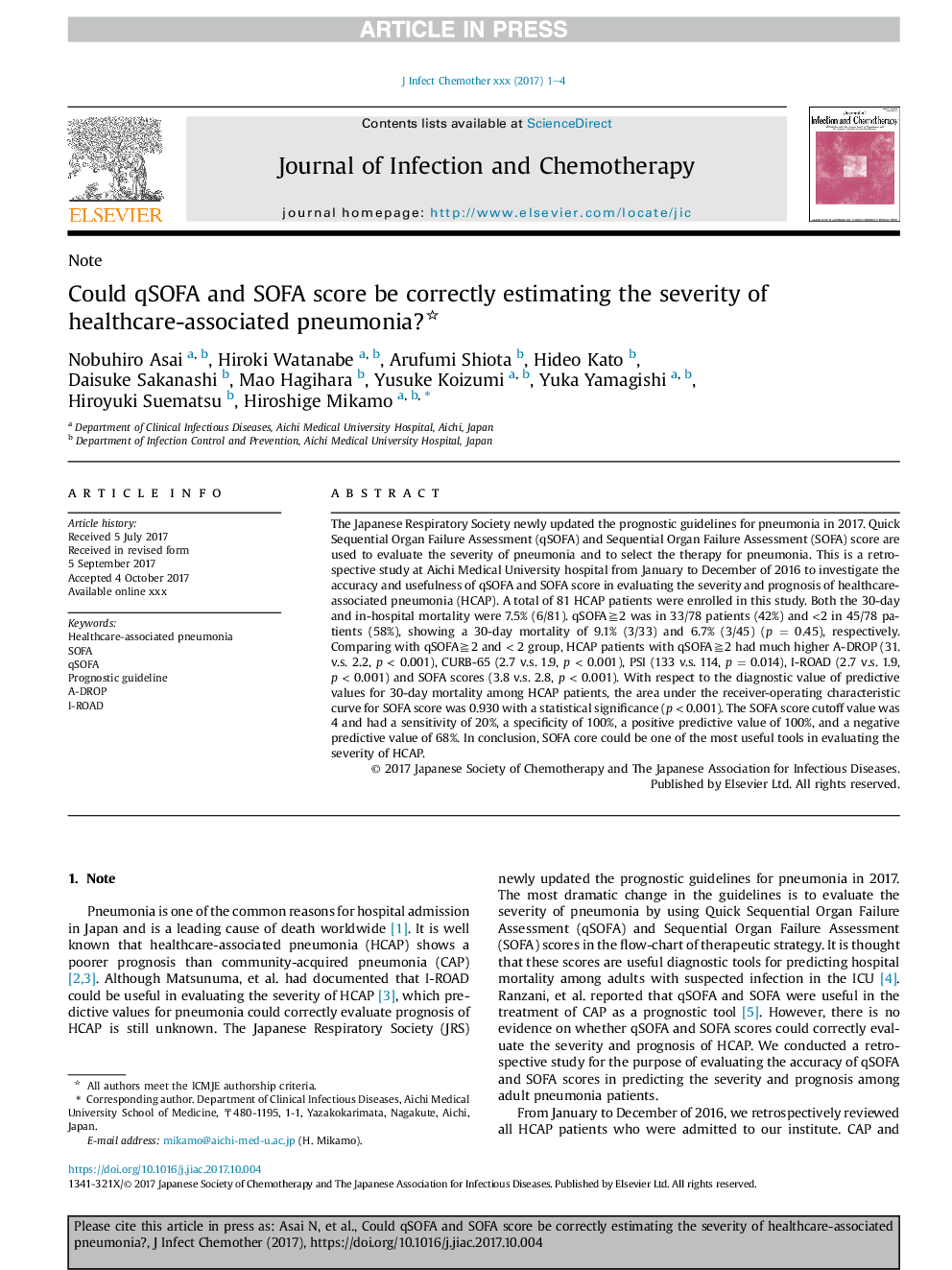| Article ID | Journal | Published Year | Pages | File Type |
|---|---|---|---|---|
| 8740719 | Journal of Infection and Chemotherapy | 2018 | 4 Pages |
Abstract
The Japanese Respiratory Society newly updated the prognostic guidelines for pneumonia in 2017. Quick Sequential Organ Failure Assessment (qSOFA) and Sequential Organ Failure Assessment (SOFA) score are used to evaluate the severity of pneumonia and to select the therapy for pneumonia. This is a retrospective study at Aichi Medical University hospital from January to December of 2016 to investigate the accuracy and usefulness of qSOFA and SOFA score in evaluating the severity and prognosis of healthcare-associated pneumonia (HCAP). A total of 81 HCAP patients were enrolled in this study. Both the 30-day and in-hospital mortality were 7.5% (6/81). qSOFAâ§2 was in 33/78 patients (42%) and <2 in 45/78 patients (58%), showing a 30-day mortality of 9.1% (3/33) and 6.7% (3/45) (p = 0.45), respectively. Comparing with qSOFAâ§2 and < 2 group, HCAP patients with qSOFAâ§2 had much higher A-DROP (31. v.s. 2.2, p < 0.001), CURB-65 (2.7 v.s. 1.9, p < 0.001), PSI (133 v.s. 114, p = 0.014), I-ROAD (2.7 v.s. 1.9, p < 0.001) and SOFA scores (3.8 v.s. 2.8, p < 0.001). With respect to the diagnostic value of predictive values for 30-day mortality among HCAP patients, the area under the receiver-operating characteristic curve for SOFA score was 0.930 with a statistical significance (p < 0.001). The SOFA score cutoff value was 4 and had a sensitivity of 20%, a specificity of 100%, a positive predictive value of 100%, and a negative predictive value of 68%. In conclusion, SOFA core could be one of the most useful tools in evaluating the severity of HCAP.
Related Topics
Life Sciences
Immunology and Microbiology
Applied Microbiology and Biotechnology
Authors
Nobuhiro Asai, Hiroki Watanabe, Arufumi Shiota, Hideo Kato, Daisuke Sakanashi, Mao Hagihara, Yusuke Koizumi, Yuka Yamagishi, Hiroyuki Suematsu, Hiroshige Mikamo,
